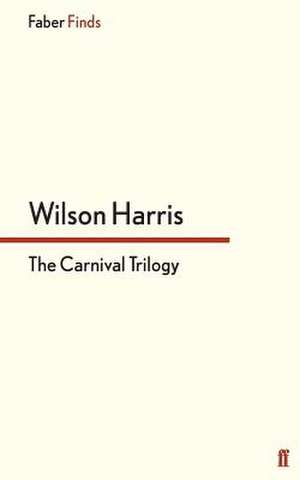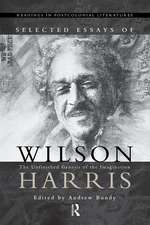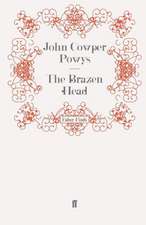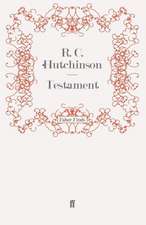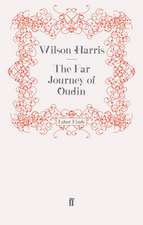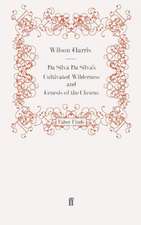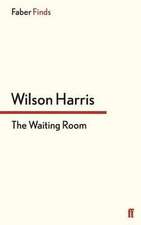The Carnival Trilogy: Faber Finds
Autor Wilson Harrisen Limba Engleză Paperback – 21 feb 2013
Preț: 228.63 lei
Nou
Puncte Express: 343
Preț estimativ în valută:
43.75€ • 46.78$ • 36.48£
43.75€ • 46.78$ • 36.48£
Carte tipărită la comandă
Livrare economică 14-19 aprilie
Preluare comenzi: 021 569.72.76
Specificații
ISBN-13: 9780571300365
ISBN-10: 0571300367
Pagini: 448
Dimensiuni: 127 x 203 x 25 mm
Greutate: 0.52 kg
Editura: Faber and Faber
Seria Faber Finds
ISBN-10: 0571300367
Pagini: 448
Dimensiuni: 127 x 203 x 25 mm
Greutate: 0.52 kg
Editura: Faber and Faber
Seria Faber Finds
Notă biografică
Wilson Harris was born in 1921 in the former colony of British Guiana. He was a land surveyor before leaving for England in 1959 to become a full-time writer. His exploration of the dense forests, rivers and vast savannahs of the Guyanese hinterland features prominently in the settings of his fiction. Harris's novels are complex, alluding to diverse mythologies from different cultures, and eschew conventional narration in favour of shifting interwoven voices. His first novel Palace of the Peacock (1960) became the first of The Guyana Quartet, which includes The Far Journey of Oudin (1961), The Whole Armour (1962) and The Secret Ladder (1963). He later wrote The Carnival Trilogy (Carnival (1985), The Infinite Rehearsal (1987) and The Four Banks of the River of Space (1990)). His most recent novels are Jonestown (1996), which tells of the mass-suicide of a thousand followers of cult leader Jim Jones; The Dark Jester (2001), his latest semi-autobiographical novel, The Mask of the Beggar (2003), and one of his most accessible novels in decades, The Ghost of Memory (2006). Wilson Harris also writes non-fiction and critical essays and has been awarded honorary doctorates by several universities, including the University of the West Indies (1984) and the University of Liege (2001). He has twice been winner of the Guyana Prize for Literature.
